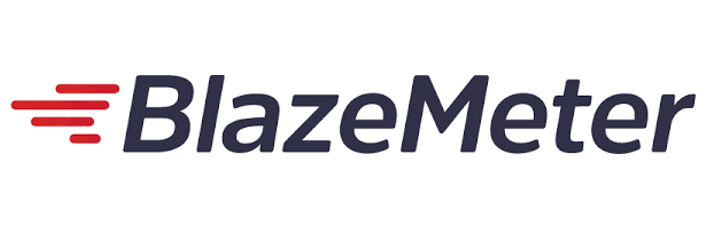Apache JMeter is open-source like any other Apache foundation project. It is meant to analyze system functional behavior by running performance tests, regression tests, stress tests, and database servers based on different technologies. However, earlier it was designed to test only web applications.
JMeter is Java-based, hence can be used to know what would be the performance of various applications and software. It sends a request to web or application servers for different loads by simulating browser behavior. The scripting language for JMeter is Groovy (an object-oriented programming language used for the Java platform). Browser plugins are also supported in this testing platform.
Here we have listed some popular trial, free and open-source software like Apache Jmeter for testing applications.
Best JMeter Alternatives (free and Open source)
1. Gatling – Load Testing Tool

Gatling is an open-source alternative to Jmeter with similarities. It is meant to cope with performance issues developers are facing with Jmeter, hence load testing can be performed continuously and efficiently. It also offers a web recorder and colorful reports.
After performing the test, it automatically generates an exhaustive, dynamic and colorful report. However, apart from the self-hosted open-source edition, Gatling offers the Enterprise edition which provides a GUI management interface and advanced features integration and automation along with on-premise and cloud-based load testing options.
Website: gatling.io/open-source/
Key Features:
- Multiple core support for web applications load testing
- Designed to be integrated into your software development lifecycle
- API Load testing
- Automated deployment of load generators
- Enterprise edition comes with a centralized interface
- Offers web recorders and colorful reports.
2. BlazeMeter – Continuous Testing Platform

BlazeMeter is another popular replacement for Apache JMeter. It is available as a free version as well as paid one for better features. Can be used to test and put a massive load on apps plus users can perform testing directly from their IDE. It can scale the load from 50k to 200,000 browser users.
Not only performance tests, but we can perform functional, scriptless, API testing and monitoring, test data, and mock services. Further, it is compatible with open-source Apache JMeter. Website, web app, mobile, database, and other scenarios testing are the focus areas of BlazeMeter.
Website: blazemeter.com
Key Features:
- Highly Scalable
- Load and performance testing directly from your IDE
- API Testing and Monitoring
- Compatible with other Continuous Integration servers such as Jenkins
- Can be extended with a series of custom plug-ins.
3. LoadRunner – Application Load Testing Tools
LoadRunner does not need an introduction to those who are already in web stress testing. It is another popular and potential alternative to Jmeter for developers in the list. This software testing tool offered by the MicroFocus software company for Windows and Linux systems.
Developers can use the trialware LoadRunner tool to perform application testing and analyze the system performance under a stress. It can concurrently stimulate thousands of user loads with the help of application software.
Website: microfocus.com
Key Features:
- Can stimulate 1000s of concurrent users.
- LoadRunner can scripts from other testing tools such as Apache JMeter, Gatling, and more…
- Supports MQTT, HTML5, WebSockets, RDP, Citrix, Java, .NET, Oracle, and SAP
- Built-in integrations include IDE, CI/CD, and source code management tools.
4. SoapUI – API Testing Tool

SoapUI stands for Simple Object Access Protocol (SOAP) and is also a good free and open-source alternative to Jmeter for web service testing. It an active project since 2005 and is available in both open-source and paid versions. The commercial version of SoapUI known as ReadyAPI, meant to enhance the productivity of developers.
This testing application is entirely built on Java and for user interface using Swing. Hence, cross-platform and can be used on multiple platforms.
Website: soapui.org
Key Features:
- Allow developers to perform a variety of things such as web service inspection, simulation and mocking, functional, security testing, load, and more…
- Have support for IDE such as Eclipse IDEA and NetBeans
- API Mocking and Data-driven testing
- Supports REST, SOAP, GraphQL, and JMS protocols
5. Flood IO – Cloud load testing platform

Flood IO is a Saas-based load testing service with free and premium plans. The free plan offers 500 Virtual user hours every month and 12 hours of Max test duration with 1 year of Data retention. Protocol-based tools it offers – JMeter, and Gatling whereas browser-based tools are Selenium and Flood IO’s own Element. It can run the existing test scripts across a globally-distributed grid infrastructure.
Website: flood.io
Key Features:
- All open-source tools support scripting on Flood
- Offers a scriptless approach to creating API load tests
- Can run Ruby JMeter test plans
- Allow developers to generate over 1 million globally-distributed requests
- Detailed analysis reports and real-time monitoring
6. loader.io – cloud-based load and scalability testing

loader.io is another Software Performance testing and free (10,000 clients/test) alternative for existing Jmeter developers to test web applications and API. It is a cloud-based application scalable to thousands of users to perform load testing.
Website: loader.io
Key Features:
- Integration with continuous integration tools.
- Cloud-based solution with up to 50,000 concurrent connections for free
- Provides sharable graphs and stats
- Integration with PaaS providers and browsers.
7. Loadview-testing

Loadview-testing is one of the best alternative to Jmeter with subscription & On-Demand plans. However, the good thing it offers a free plan with 44 hrs Max Test Duration (per test), Unlimited Concurrent HTTP, and Unlimited Concurrent Browsers but for single tests. This lets your tests be more realistic and data generated through it would be more accurate.
Developers can analyze their website or web application rendering steps with the help inbuilt video recorder feature of this tool.
Further, it offers over 40 geographical zones across the United States, Canada, South America, Europe, and APAC.
Key Features:
- Choose between HTTP/S or real browser-based testing.
- Load Injector Control
- One-time pay-as-you-go on-demand test
- Detailed Performance reports such as the graphical representation of execution plan average response and more.
- Run tests for Website or Web apps, APIs, and more.
Website: Loadview-testing.com
8. Tsung

Tsung also called idx-Tsunam is an open source stress testing tool alternative to Jmeter. It is written in Erlang programming language and can also work in a clustered environment. The source of Tsung is available on GitHub and can be used to test HTTP, WebDAV, SOAP, PostgreSQL, MySQL, LDAP, MQTT, AMQP, and Jabber/XMPP servers.
Key Features:
- A high-performance benchmark that is scalable up to 50k users’ load
- Multi-Protocols support using a plug-in system
- XML configuration system
- Can be used in a cluster environment
- OS monitoring using SNMP
- HTML reports can be generated
Website: http://tsung.erlang-projects.org/
FAQ
JMeter is a free and open source website or web app testing tool for analyzing and evaluating performance. It is based on Java and apart from web app testing, it can be used for functional, database testing and more as well. The tool may be a bit old and stand out visually from the new ones, but in its possibilities it plays in the front rows.
Jmeter is used for testing how much load can an application or servers bear to measure the performance. While Selenium used by web application developers to perform automate testing of their web apps in browsers.
Yes, JMeter is a load testing tool that can be used for functional and database testing.
Here are the some best Jmeter tool alternatives:
1. Gatling
2. BlazeMeter
4. LoadRunner
5. SoapUI
6. Flood IO
7. loader.io
8. Loadview-testing
Other Articles: